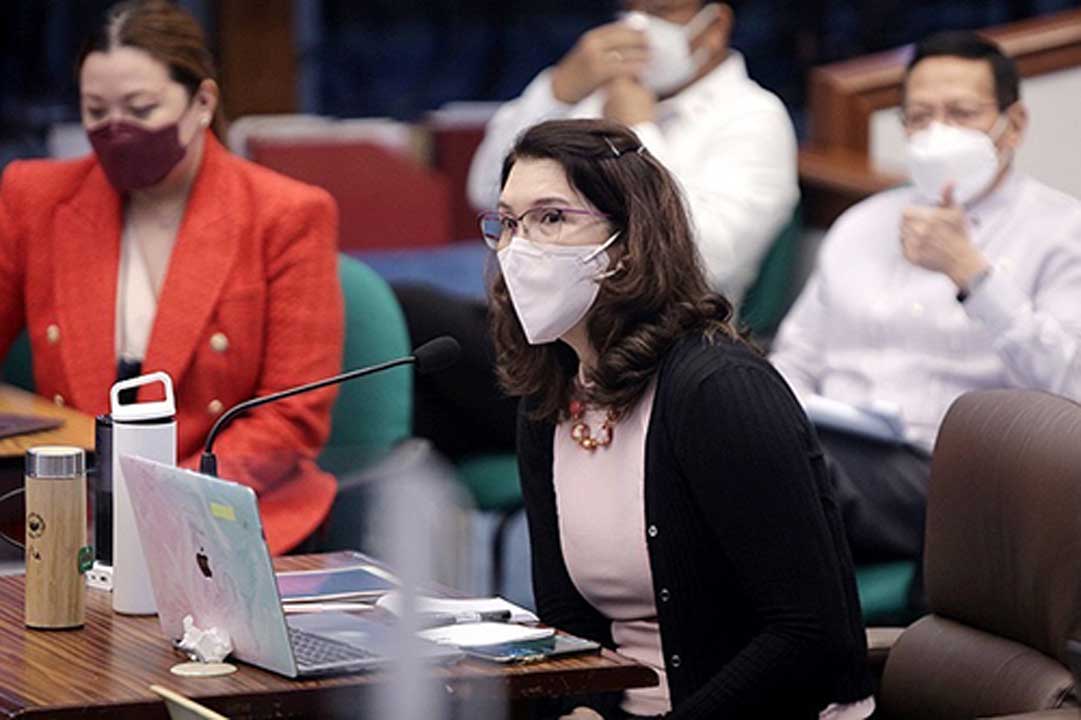Senate’s budget debates delayed on COVID scare
By Alyssa Nicole O. Tan and Jenina P. Ibañez, Senior Reporter SENATE DEBATES on next year’s budget would probably get delayed after some senators and their staff were exposed to the coronavirus by a Cabinet official who tested positive. “Yes,...

By Alyssa Nicole O. Tan and Jenina P. Ibañez, Senior Reporter
SENATE DEBATES on next year’s budget would probably get delayed after some senators and their staff were exposed to the coronavirus by a Cabinet official who tested positive.
“Yes, indeed, there will be a delay,” Senate President Vicente C. Sotto III told reporters in a Zoom Meetings video conference on Thursday. “We will just have to work double-time.”
Senators ended the session at 11:30 p.m. on Wednesday after learning that Defense Secretary Delfin N. Lorenzana, who went to the Senate the day earlier, had tested positive for the coronavirus.
Lawmakers who were exposed to the Defense chief immediately left the plenary as a precautionary measure. The Senate building was immediately disinfected.
A photo provided by Senator Emmanuel Joel J. Villanueva showed Mr. Lorenzana shaking his hand, while Senators Juan Miguel F. Zubiri, Maria Lourdes Nancy S. Binay and Francis N. Tolentino were nearby.
Senator Ronald M. dela Rosa, defended the Defense agency’s proposed budget, was seated in front of Mr. Lorenzana.
Mr. Sotto said a four-day delay was not too bad since the chamber was considering to approve the appropriation bill by the first week of December. “So, it will become the second week of December.”
Congress will take a month-long holiday break starting Dec. 18.
Senators had wanted to finish interpellations this week so they could propose changes by next week. The Senate president said they would try to finish debates by Monday.
“Because of what happened, we will have to try on Monday to finish everything until the wee hours of the morning on Tuesday,” he said. Sessions would be extended up to Friday if debates could not be finished in a day.
Senators still have to discuss the budgets of the Social Welfare, Transportation, Trade, Education and Public Works departments, as well as appropriations for the Presidential Communications Operations Office and Philippine Association of State Universities and Colleges.
Mr. Sotto ruled out a reenacted budget, saying they still have time even for a bicameral committee session.
Senators and congressmen could fast-track agreement on the budget measure as long as the bicameral meeting “does not drag on,” he added.
In an advisory, Mr. Sotto said that all visitors entering Senate premises must present a negative coronavirus test result that will be valid for 24 hours, a medical certificate showing that they do not have symptoms, and a COVID-19 vaccination card.
“We have decided to increase our protocols by requiring all visitors for the Budget deliberation to present a 24-hour RT-PCR report instead of a 72-hour result,” Mr. Zubiri told reporters in a Viber group message. Mr. Lorenzana presented a 72-hour result but he got exposed after that, he added.
The Senate majority leader said the Senate has informed people who were in contact with the Defense chief so they can self-quarantine.
“Unfortunately, the day that the secretary was here was a day of an unusual number of senators present in session as we had an official delegation from the Hungarian Parliament present as well,” he said.
Meanwhile, government agencies’ cash use rate had gone up to 91% in the 10 months to October, according to data from the Department of Budget and Management.
The National Government, local governments and state-owned companies used P3.05 trillion of P3.35 trillion worth of notices of cash allocation issued to them during the period.
The rate was better than 77% a year earlier, while it was 95% as of end-September. The notices of cash allocations are given to agencies to let them withdraw funds from the Treasury to cover their spending needs.
The quick disbursement and use of the budget is typical leading up to the national elections, ING Bank N.V. Manila Senior Economist Nicholas Antonio T. Mapa said in an e-mail.
“In some election cycles the increased contribution of these government activities outweighs or perhaps is mirrored in household consumption, suggesting that administrations and politicians on every level are busy attempting to complete as many projects ahead of the polls,” he said.
Government spending on infrastructure had been one of the key economic drivers since the start of the pandemic last year, said Michael L. Ricafort, chief economist at Rizal Commercial Banking Corp.
Projects could be fast-tracked before the election ban on some public works next year, he said in a Viber message.
“Infrastructure would be one of the major pillars for the country’s economic recovery program from COVID as funds are already available to further pump-prime or stimulate the economy to improve economic recovery pro-spects,” he said.
A public works ban will be in effect on March 25 to May 8, 2022 before the elections, according to the Commission on Elections.
The Budget department said line agencies had used 88% or P2.09 trillion of their notices of cash allocations from January to October, leaving P289.9 billion unused.
The Commission on Audit had the highest use rate among these departments at 99%, while the Joint Legislative-Executive Councils used as much as 88%. The Civil Service Commission and Interior and Local Government depart-ment had 97% each.
Budget support for government-owned and -controlled corporations reached 96% usage, while the allotment to local government units had been fully used.
The House Committee on Appropriations on Wednesday night endorsed to the plenary a bill that would extend the validity of funds under this year’s national budget. House Bill 10373 will extend all appropriations until Dec. 31, 2022.
Completion, inspection, and payment of infrastructure projects and maintenance and operating expenses should also be finished by then.
The House approved the proposed P5.024-trillion budget for next year on third and final reading as early as Sept. 30.
President Rodrigo R. Duterte had approved legislation that extended the validity of the 2019 and 2020 national budgets.
The Philippine economy grew by 7.1% year on year in the third quarter, lower than the revised 12% growth in the second quarter, after fresh lockdowns were imposed in Metro Manila to contain a more contagious Delta coro-navirus variant. — with RLCK


















